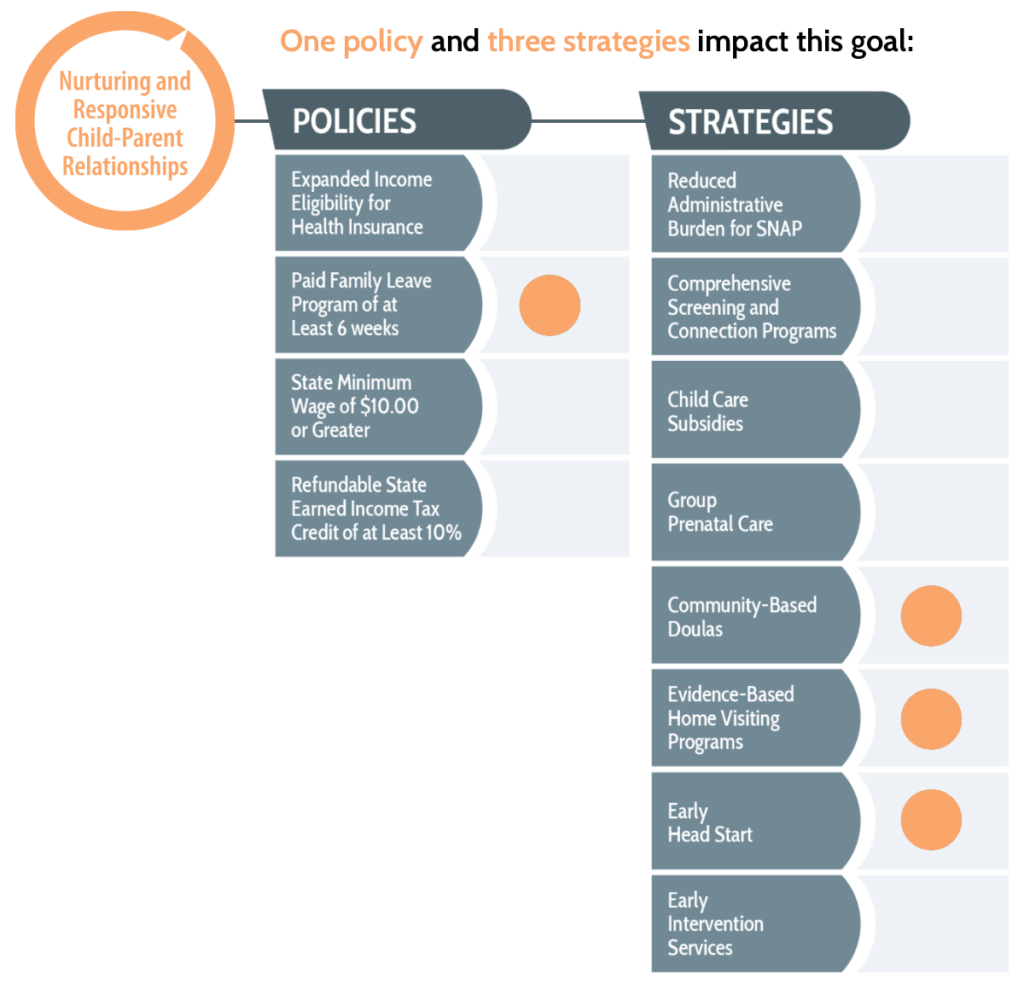NURTURING AND RESPONSIVE CHILD-PARENT RELATIONSHIPS
Stable, nurturing, responsive relationships with caregivers during the earliest months and years of a child’s life are key to long-term healthy development. Yet those critical early years also can be stressful for parents, who may themselves struggle to cope and to connect with their children. The developing brain depends on secure attachments and serve-and-return interactions, in which adults reliably and appropriately respond to a child’s cries, babbles, and other bids for connection. These interactions shape brain architecture, both providing the positive stimulation children need for typical development and acting as a buffer to stress, protecting the developmental process from disruption. Ensuring nurturing and responsive child-parent relationships is foundational to building a prenatal-to-3 system of care.
Three outcome measures illustrate parents’ nurturing interactions with their infants and toddlers:
- Daily reading,
- Daily nurturing behaviors, and
- Parenting stress.
Based on comprehensive reviews of the most rigorous evidence available, the Prenatal-to-3 Policy Impact Center identified 12 effective solutions that foster the nurturing environments infants and toddlers need. Four policies and strategies have demonstrated effectiveness at improving child-parent relationships.

For additional information on the nurturing and responsive child-parent relationships policy goal, see the Prenatal-to-3 Policy Clearinghouse.
